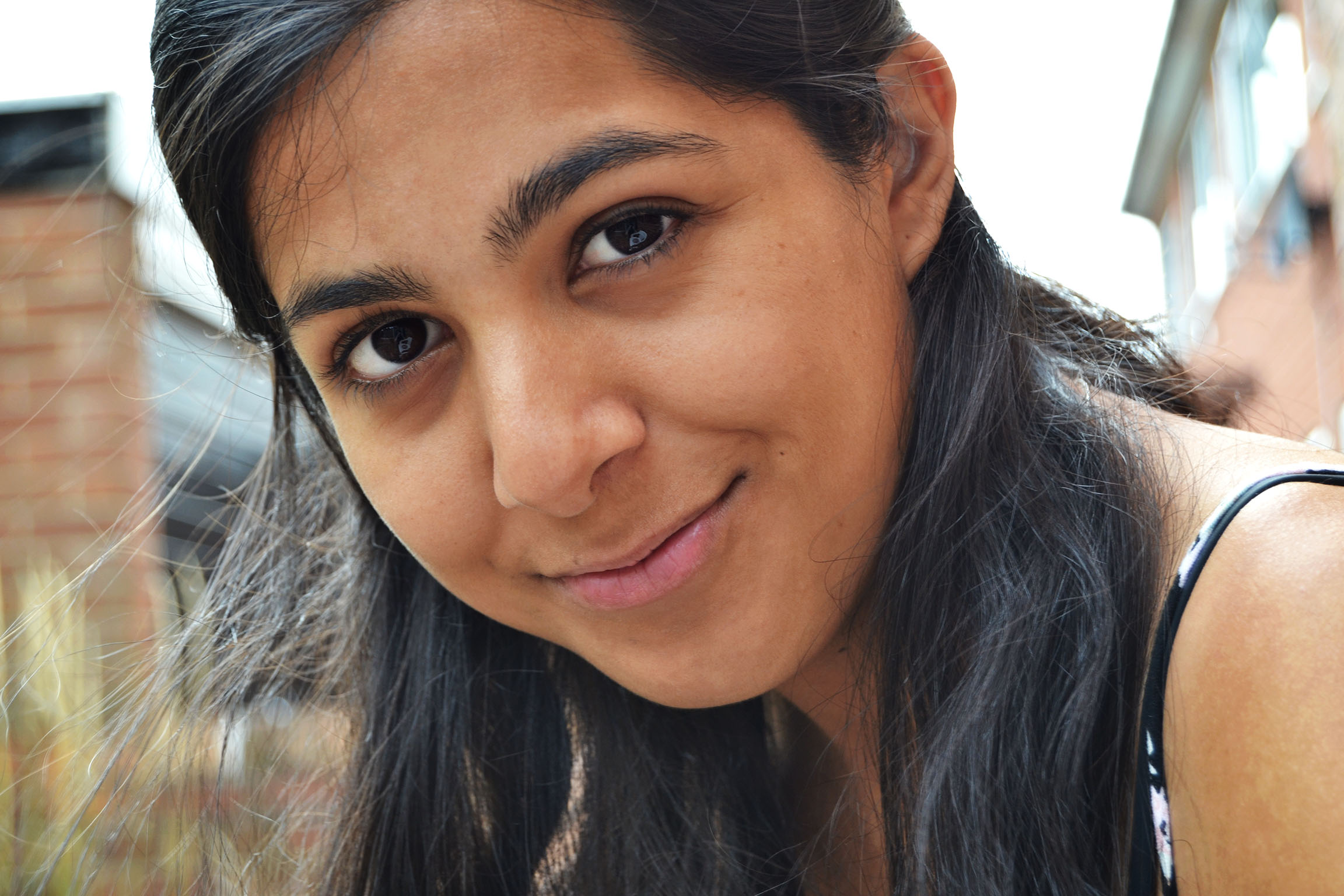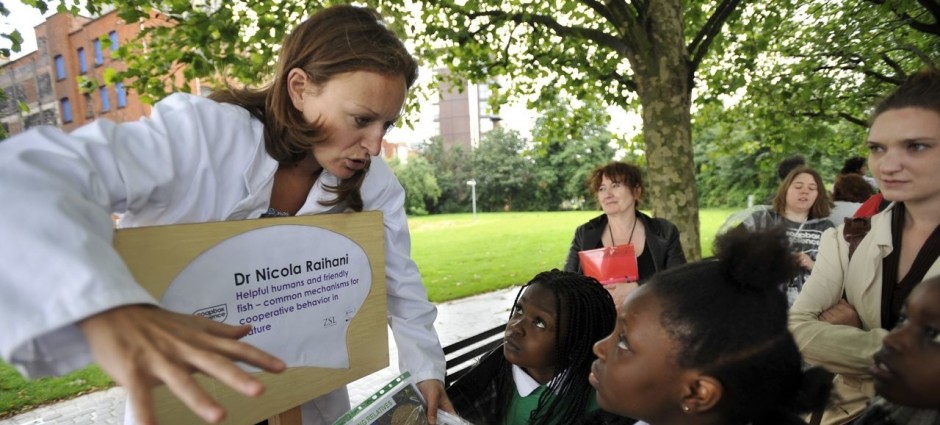 Shobita Bhumbra (@qsd_sussex), University of Sussex, is taking part in Soapbox Science Brighton on 1st June with the talk:“Quantum Physics – The coolest thing in the universe (…as far as we know)”
Shobita Bhumbra (@qsd_sussex), University of Sussex, is taking part in Soapbox Science Brighton on 1st June with the talk:“Quantum Physics – The coolest thing in the universe (…as far as we know)”
Soapbox Science: What attracted you to Soapbox Science in the first place – and what are you most looking forward to/excited about in taking part?
I wish to enthuse and encourage people into the field of quantum physics. I personally enjoy teaching and want to impart knowledge and empower people regardless of background and gender such that subjects like quantum physics are not out of reach. Quantum science is underrepresented as a whole in the public domain especially for and by women and I feel Soapbox Science is an ideal place to work towards changing that. Quantum physics is a hugely important and developing area with many applications at the heart of emerging and future technologies. I want to de-mystify quantum physics and show people that this subject can be fun, interesting and cool!
SS: Tell us about your career pathway
My undergraduate degree at the University of Nottingham was in Biochemistry and Genetics. I then worked at a pharmaceutical company in Leicester synthesising and purifying proteins. After that I jumped into electronics by joining my dad’s company. This led me to the quantum physics group in the University of Nottingham where I carried out multiple stretches of electronics work. After the team moved to the University of Sussex I was invited to join them as a research electronics technician. As I integrated into the team I became interested in the group’s research in cold atom microscopy and how it could relate to my background in biological sciences. This compelled me to apply for a PhD to develop the group’s magnetic microscope towards being able to measure biological samples.
SS: What, or who, inspired you to get a career in science?
I was lucky to go to schools with some great science teachers who worked very hard to give us digestible and entertaining content. My dad has always been a big inspiration as he’s always valued education, logic and critical thinking. He loved explaining or getting us to explain how things worked and also helping us work through silly problems he’d set us when we were bored.
SS: What is the most fascinating aspect of your research/work?
Expanding and combining two separate scientific fields to uncover the information hidden in the crossover. Being part of a cutting edge technique and applying it in areas it’s never been applied before.
SS: Research in STEM is increasingly multi-disciplinary. Which subjects do you use in your work?
Quantum physics – The sensors we are developing work off of the principles of quantum physics
Electronics – We often have to design and troubleshoot the equipment that runs the experiment
Engineering – We use vacuum chambers and 3D printed parts
Material science – We have 3D printed components and create samples in collaboration with material scientists
Biology – we working on our sensors to be compatible with studying biological samples
SS: What 3 attributes do you consider important to your work (e.g. creativity, team-work, etc), and why did you pick these?
Teamwork – Everyone has individual skill sets and specific knowledge that you will definitely need. Collaboration is an essential part of research.
Resilience – It is an inevitability to have setbacks, mistakes and failures in research, it’s much less demotivating to see these as part of your growth.
Analytical thinking – the mistakes and setbacks need to be analysed and learned from! That’s the scientific process.
SS: If you could change one thing about the scientific culture right now, what would it be?
More open source Journals! Scientific papers are published in scientific journals that often require expensive subscriptions.
There are challenges that come with making scientific content free, but I believe they are worth tackling to give everybody access to as much human knowledge as possible.
SS: What would be your top recommendation to a female student considering pursuing a career in academia?
Academia can be intimidating, feeling like you’re surrounded by intelligent, knowledgeable people. So many people, especially women, end up with imposter syndrome (when you feel like people will soon work out ‘you don’t belong here!’ and ‘you don’t deserve what you have achieved’). I have found that the best thing to tackle this damaging mind-set is to simply look after my mental health, get enough sleep and exercise and have a good support network. Remember that it is always better to ask stupid questions and understand than stay quiet and ignorant!
SS: What words of encouragement would you give to children who might be interested in a career in science?
Keep asking questions and set yourself projects you find interesting. Make sure that you keep at it and see at least some of them to completion.
Find people with similar interests to help keep you going and help you when you get stuck.
